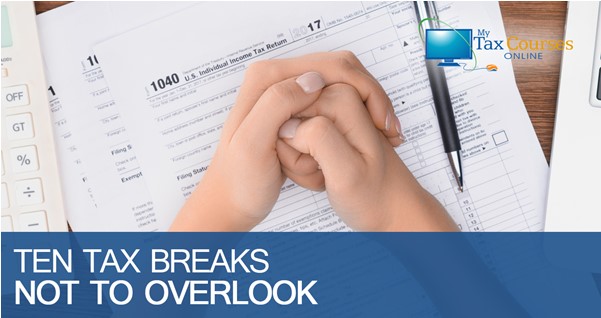The IRS is already accepting tax returns, and you’ve likely begun receiving your tax documents for the 2021 tax year. With the tax code becoming increasingly complicated, and more people than ever filing returns to take advantage of tax savings, it’s important to stay on top of all of the deductions and credits that apply to you.
There are 10 commonly overlooked tax breaks that may increase your refund, or decrease the amount of taxes that you owe - so make sure you’re not missing out on money this year.
Overlooked Tax Credits
1. Child Tax Credit
Child Tax Credits were paid out to eligible families from July - December, but only up to half of the qualifying credit was paid out. For the January - June portion, you will file for the credit on your taxes.
2. Residential Renewable Energy Credits
Tax credits for residential renewable energy products are being issued for items like solar energy systems, fuel cells, small wind turbines, and geothermal heat pumps. These are all new for the 2021 year, in addition to improvements on central air conditioning systems, boilers, furnaces, and more.
3. Plug-In Electric Drive Vehicle Credit
You may qualify for the Plug-In Electric Drive Vehicle Credit, but only if you purchased a car or truck that:
- Has at least four wheels
- Weighs less than 14,000 pounds
- Uses energy from a battery with at least 4-kilowatt hours that can be recharged from an external source.
You must have purchased the vehicle in or after 2010 and started driving it in the same year in which you are claiming the credit.
4. Adoption Credit
Very specific guidelines are offered by the IRS for adoption-related tax credits: expenses include reasonable and necessary adoption fees; court costs and attorney fees; travel expenses; and other expenses directly related to adopting an eligible child. You can also exclude income for employer-provided adoption assistance.
Overlooked Tax Deductions
1. Significant Medical & Dental Expenses
If your medical or dental bills total more than 7.5% of your adjusted gross income, you can deduct these expenses. You can include expenses incurred by yourself, your spouse, and your dependents when determining this number. Preventative care, as well as any diagnosis, care, or treatment qualifies.
2. Working From Home
If you work from home, and your workspace is separate from your living space, you can deduct work-related expenses. This also applies if you use a portion of your home for storage of samples, a space that you rent out, or if you run a daycare facility out of your home.
3. Commuting For Work
The miles that you drive to and from work, and for work, can all be deducted on your taxes. Just be sure to keep your work mileage logged separately from when you drive for personal use.
4. Charitable Contributions
Money, services, and goods that you donated to nonprofit 501(c)(3) organizations can be deducted from your taxes.
5. Teachers’ Expenses
Up to $250 of unreimbursed classroom supplies can be deducted from your taxes.
6. Sales Tax
Instead of deducting income taxes, you can choose to deduct state and local sales taxes. According to the IRS, you can do this if the tax rate in 2021 was the same as the sales tax rate.
Remember that the most efficient way to file your taxes is electronically. Paper returns have created a backlog at the IRS that is delaying returns for millions of taxpayers. Filing electronically is the only way to ensure that you receive your return within the expected 21-day window.




